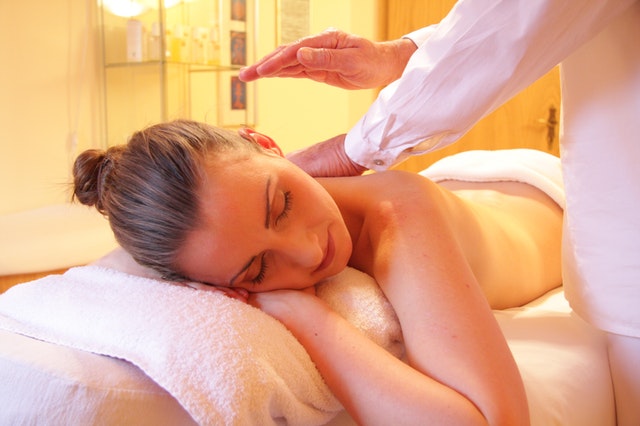
Being a skin and beauty therapist is a rewarding and varied way to make a living — helping your clients as part of a salon or as a self-employed beauty therapist.
As a beauty therapist, you will cover a range of different treatments — from facials, waxing, nail applications, and massages, to treatments for the hands and feet. And as part of this, you are expected to know the fundamentals of good skin care and skin hygiene.
Unless you specialize in this area and have qualifications, or have taken part in various training courses, it can sometimes feel like you don’t know enough about skin care from a medical perspective.
In this post, we’ll be giving a brief overview of what skin and beauty therapists should be aware of from a medical point of view; read on to find out more. (If this is an area you would personally like to develop, then we would recommend signing up for specialist training programs from which you can gain a qualification, as well as reading up further on skin care as a topic.)
Get to know your client’s skin and medical history first
Consultation is an important part of beauty therapy: you need to get to know your client’s skin first before you carry out any treatment whatsoever.
Of course, everyone’s skin is different; what works for one of your clients and helps to improve their skin will not work for all of them. All sorts of factors come into this, whether it is sex, age, race, genetics, or environment — so make sure you tailor any skincare treatment or regime to their wants and needs. Finding out more about their dermatological history — whether they suffer from pimples, dry skin or oily skin, or anything else — will help you to get your treatments just right.
It’s also vital that you get to know their medical history too; in terms of dermatological conditions such as rosacea, acne or eczema, as well as any wider conditions, allergies or medications (such as blood-thinners) that may be impacted by (or impact on) the treatments you carry out or products you recommend.
Carrying out a client consultation before you start any treatment is crucial, and a key component of being a beauty therapist — marking you out as a professional, as well as protecting both you and your clients.
You may need to refer clients to a doctor or dermatologist
There will be some dermatological conditions that will not impact or be impacted by any of the treatments you carry out.
However, there will be some situations in which you will have to refer your clients to a medical professional — usually either a doctor or a dermatologist. This will be because it is a skin problem or condition that you don’t know how to treat or something that is completely out of your remit.
Both doctors and dermatologists are trained to recognize and diagnose skin problems that may require further treatment or medication, as well as being able to prescribe this medication (something which you won’t be able to do as a skin and beauty therapist).
For example, if your client has inflammatory acne, then an acne antibiotic cream is usually recommended, and often the best course of treatment. These are made up of an effective antibiotic that kills the acne-causing bacteria, and another active ingredient that helps the body to shed excess skin cells, unblock pores and dry the skin; they also need to be prescribed by a doctor.
Keep all your tools and beauty room clean and sterilized
If you’re going to be carrying out various treatments, then it is vital that you keep your tools and beauty room sterilized and clean. This may sound obvious, but some people can cut corners when it comes to cleanliness — and this needs to be avoided at all costs.
Not only does this make your services more appealing and seem more professional to clients (which means they will be more likely to come back), but it also means that you are providing services that are as safe and hygienic as possible for the people that visit you.
If you don’t keep your beauty room and tools clean and sterilized, you run the risk of cross-contamination, spreading germs and bacteria, or exposing clients (or anyone else entering your salon or beauty room) to the hazardous chemicals that some products may contain.
Medically speaking, these hazards could result in infections (such as fungal infections) and lice, irritate allergies, and cause asthma flare-ups.
As a skin and beauty therapist, there are some things that you need to be aware of from a medical point of view and take into consideration when you are treating or recommending products to a client.
Primarily, you need to be as safe and professional as possible — always conducting an initial client consultation, maintaining high levels of hygiene, and referring clients to a doctor or dermatologist when a condition is out of your scope or you aren’t medically qualified to carry out a treatment.
If you want to specialize in a specific area such as dermatology, then it is possible to build on this fundamental knowledge by taking part in training courses and gaining additional qualifications.



